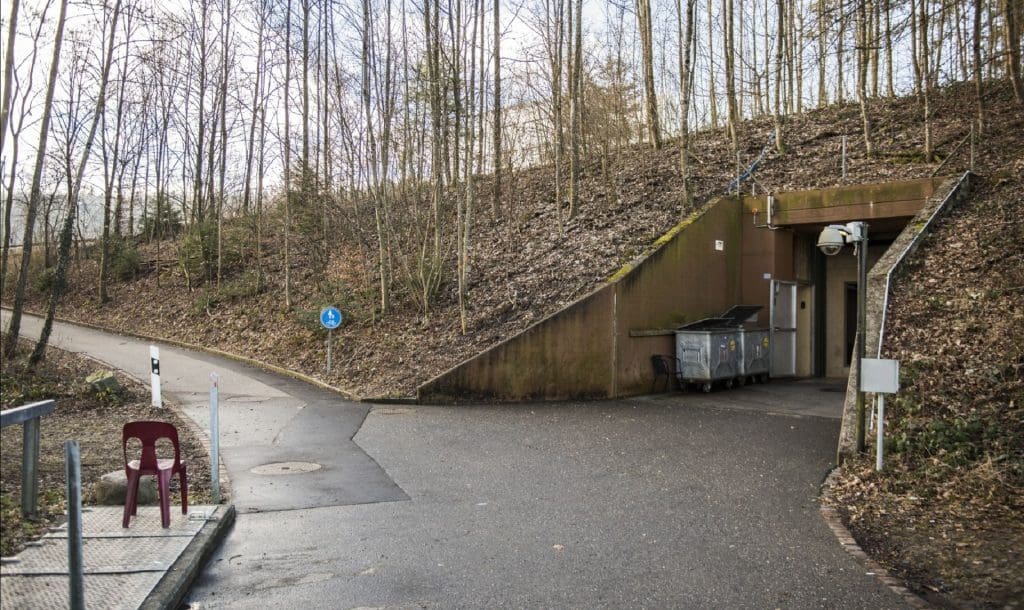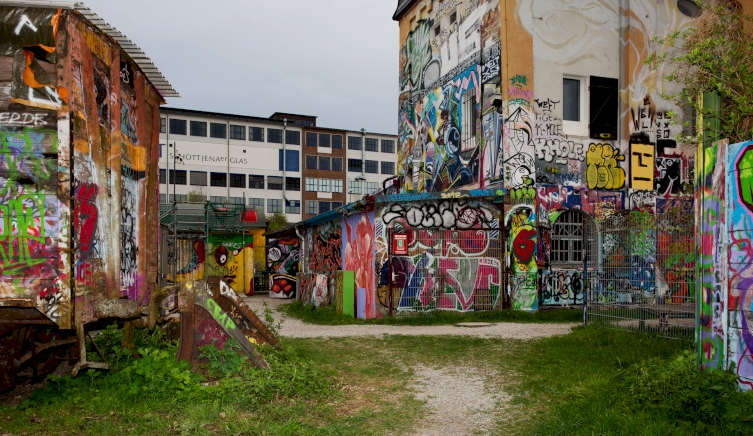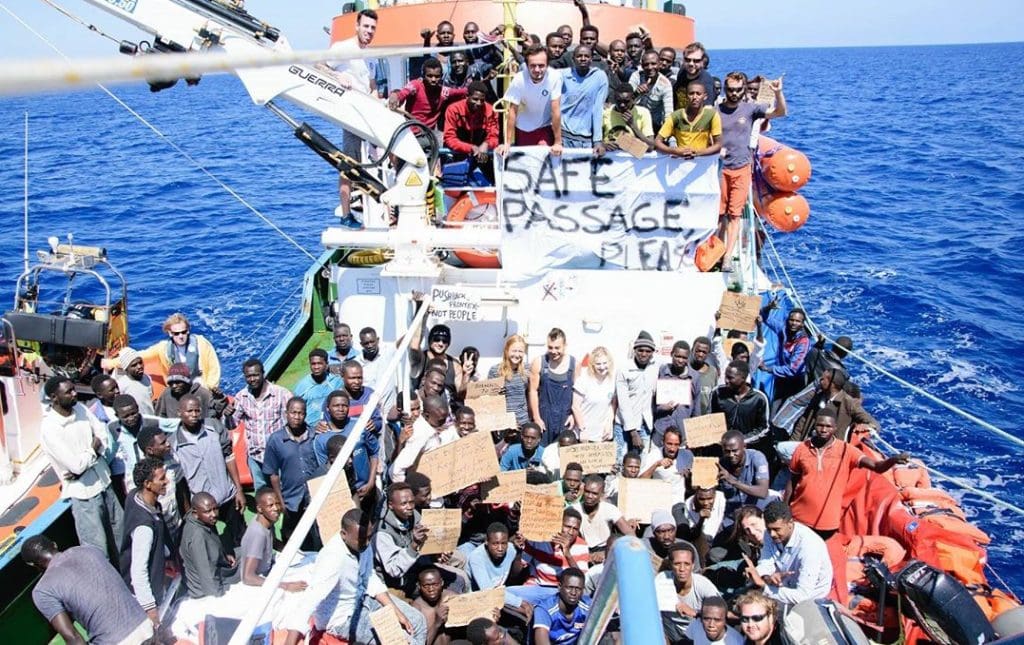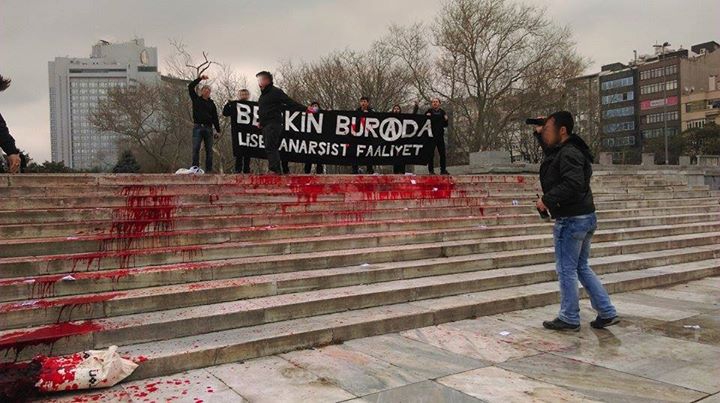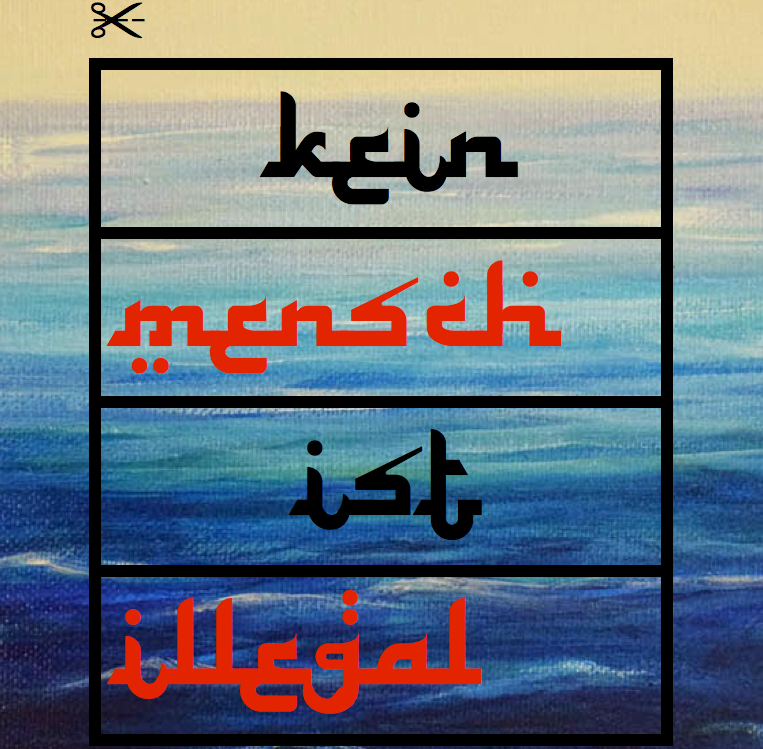AntiNote: A local activist and writer recently visited a new squat in Zurich, established by asylum-seekers stranded and criminalized by the Swiss immigration enforcement system, and spoke with one of the residents there. Here is the conversation they had, as presented by Ajour Magazin last week. Reprinted with permission.
“I tell you: fight with me against the camp system”
by F. Frey for Ajour Magazin (Switzerland)
22 April 2017 (original post)
In Switzerland, refugees are often isolated and housed in old fallout bunkers all over the country. There is, of course, no sunlight, and people are exposed to constant harassment by the authorities. Frida Frey spoke to one of thirteen illegalized refugees who decided that for them to get out and be part of society is more important than complying with what the state tells them to do. In March 2017, they decided to move into a derelict house in central Zurich that is owned by Credit Suisse Group AG.
Hey, can you tell me something about the house?
The house exists since one month ago and has another month to stay. It’s an apartment building with four floors and nine flats and a garage for ten cars, and twenty-four rooms. The current owner is Credit Suisse, that wants to start with construction for a new building in a month.
How was the squatting?
We were a group of people, refugees and some Swiss activists that wanted to support us, and they helped us in communicating with the owner. During the time our Swiss friends were talking with the owner, the rest of us were really panicked that something bad could happen that could have severe consequences for us. But surprisingly, all went really good and we made the deal that we could stay for two months. We just make no noise and no trash and we pay for water and electricity. It’s the third house we try, so we are really happy that it worked out.
Why are they going to tear down the house?
Because the house was left abandoned for a long time, there is now one mold-infested flat. Therefore the whole house has to be destroyed.
Who is living in the house?
We are refugees from different camps, all of us illegalized. We tried to invite other people to the house but most of them are afraid to lose the little they have back in the camps. Until now there are about thirteen people.
How did it come about that this group of people squatted this house together?
For this group, squatting the house is a reaction to the repression in the camps. The conditions in the camps are not for human beings. It makes the people look for other places where they can live in society. Having a place to stay in society is a basic thing for human beings. We see the empty, abandoned and trashed houses in Zurich, so why not live there? Why not live there instead of the bunkers, where you live like in a prison, where you don’t have a place to act and revolt for our freedom? Better to have a squat for a short time and with an unsure situation than to live in a bunker. Better than always being controlled by the police and forced to sign for your presence every day. Better than always feel pushed by the police to leave Switzerland.
Squatting a house opens rooms for discussions with other people. Now they can see you, they can talk with you, it makes you visible.
Why was it important for you to squat the house by yourself?
On the one side, it’s important to “sign the name of the refugees” on the houses. It makes us visible, it makes us present. On the other side its important, that white, Swiss privileged people support us. People that talk good German, that can talk with the police and with the owner of the house. Sometimes I think to squat a house alone.
Why is there a relationship between the squatters movement and the refugees?
We have one enemy together, the same repression. So why not fight together? At this moment, people realize the way how we would like support. For example, a lot of people want to support refugees with German classes, food, clothes. That’s also important, but refugees need a place and a society. That’s what we need.
I had the impression that some anarchist people in Zurich shared our analysis about the repression we are living in. We think the basis for the repression is in the camp structure. So taking the people out of the camps becomes a goal to fight repression. Because you know, the goal, how to keep on and not to be a refugee anymore, is always in the head. It’s impossible to stay without moving, without doing anything.
What’s the goal of the squat?
The house gives room to the struggle, room to build society. This is important. Refugees often look for quick solutions to escape the situation. This is understandable. But for a long term solution, you have to fight for it in a political way. How can you think about what you want under the repression and machine of the camps, dealing with penalties and punishment every day?
Can you tell me a bit about your situation?
I traveled through many countries and risked my life to find a place where I can live. As an atheist Muslim I came to this land with the perspective to live in freedom of thinking. But Switzerland destroyed my freedom of movement and tried to destroy my freedom of thinking. They arrested me everywhere where I was, they put me in a bunker together with eighty other persons, to share my bedroom with twenty. Where I have to sign twice a day to get my eight francs to live. Where I have to see the same faces of the people from the ORS every day that reminds you that the police could come anytime to kick you out. How can a society that refers on human rights isolate migrants this way and take away all the dignity and respect?
[The ORS is one of the organizations that is in charge of the “supervision and organization” of the asylum camps. —AM ]
How about your freedom of thinking?
I am thinking all the time about the conditions, how we live. How can I get back my freedom? My freedom in the society? As I said, as an atheist Muslim, I came to this land hoping to live in freedom of thinking. I will not be stopped by racist laws enacted by the security department governed by Mr. Mario Fehr. For example I also refuse to prove that I’m an atheist to SEM [Staatssekretariat für Migration] in order to receive a permit or an Ausweis that they can take away as easily as they can give it to me.
[Mario Fehr, director of the regional security department, recently intensified the regulation of refugees in Zurich. Since March the refugees have had to sleep in the underground Bunkers every night if they want to get the emergency assistance that includes the daily seven or eight francs. —AM]
How can you fight?
I don’t have any support at the moment, just this squatted house. And a strong heart with courage to continue in my way and work on my perspective for the future. If you are interested to get involved in a real fight with refugees: not with Deutschkurs (and if you say that the language is the key I tell you my freedom of movement is the key for me), or with sports for refugees (sorry, we run every day from the police, so there is no need for it).
So when people ask, what can we do to support you?
I tell you: fight with me against the camp system. My concern is that more than eight hundred refugees are still staying in different camps: Kemptthal, Uster, Kloten, Adliswil, Hinteregg, and my shitty bunker, Urdorf. These are people who hate to stay in those camps, without a right to work or to go outside the assigned area, but they don’t know what they can do about it.
I hope that someone will read this text and decide to go visit those camps. That would be a great thing to do! Break the isolation. Bring everything stupid you don’t need to our new home squat because everything is good for an empty house. We want to be able to move so we need the possibility to use public transport, cars, bicycles. Think out of the bureaucratic categories and go for the real needs of the people. Be part of my fight.
* * *
Note from Ajour Magazin: There are 7 NUK (Notunterkünfte, emergency shelters) in Zurich. You find them in Adliswil, Embrach, Hinteregg, Kemptthal, Kloten, Urdorf and Uster. Picture of NUK Urdorf: Thomas Egli
Our friend is one of many refugees who have hope for the future and want to build a better world. But for him the request of residence has frequently been answered in the negative by the SEM (State Secretariat for Migration). Credit Suisse allowed for the refugees to stay in the house only until construction work begins.
You can find the squat at Klosbachstrasse 50 in 8032 Zürich.
Additional note from the Antidote Writers Collective: For more information about the grossly inhumane bunker system in Switzerland—which by definition largely remains hidden from view—and the Kafkaesque legal constraints under which the residents of this system live, please have a look at this previous report, translated from Zurich’s refugee-run newspaper Papierlose Zeitung.

